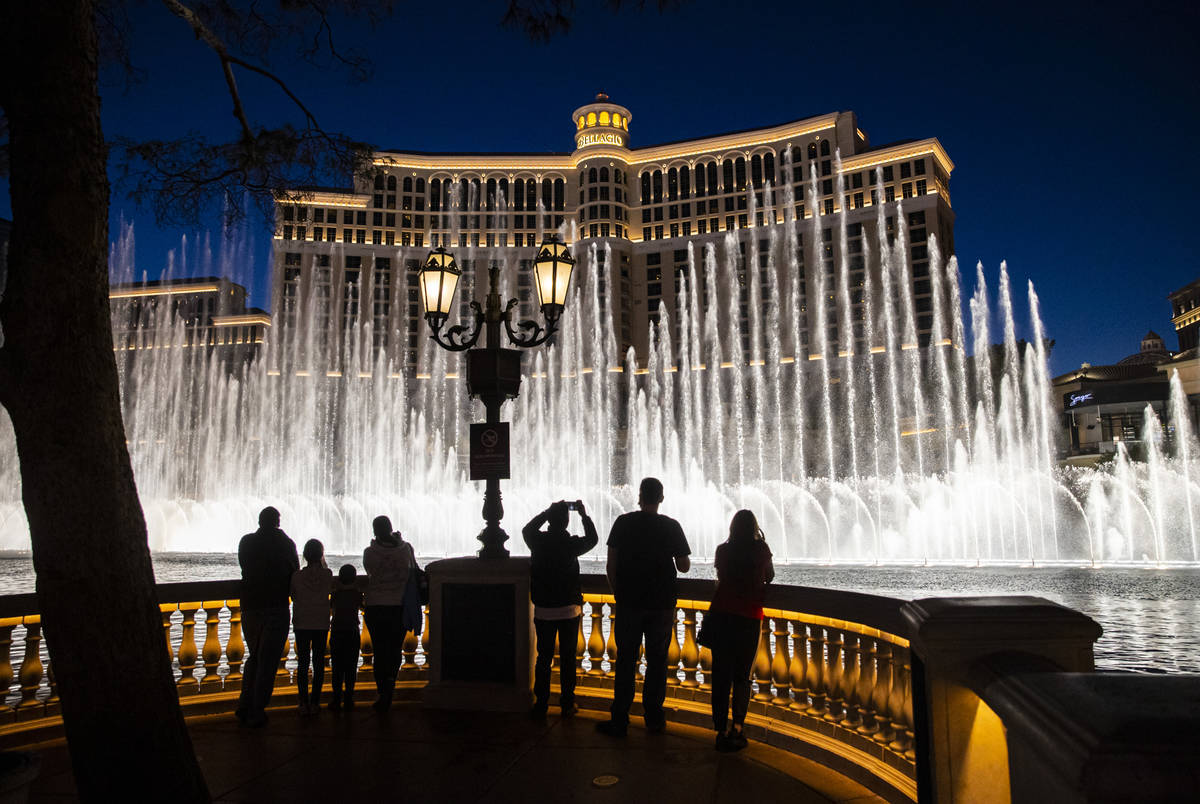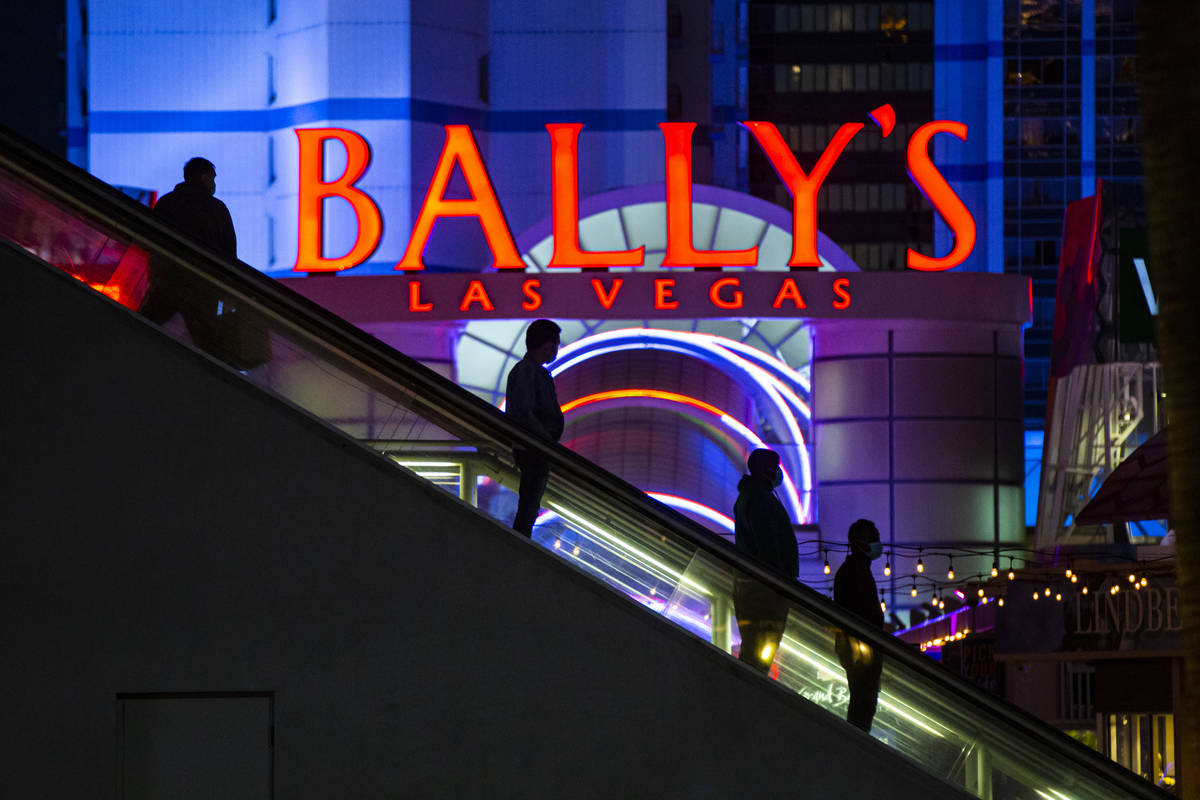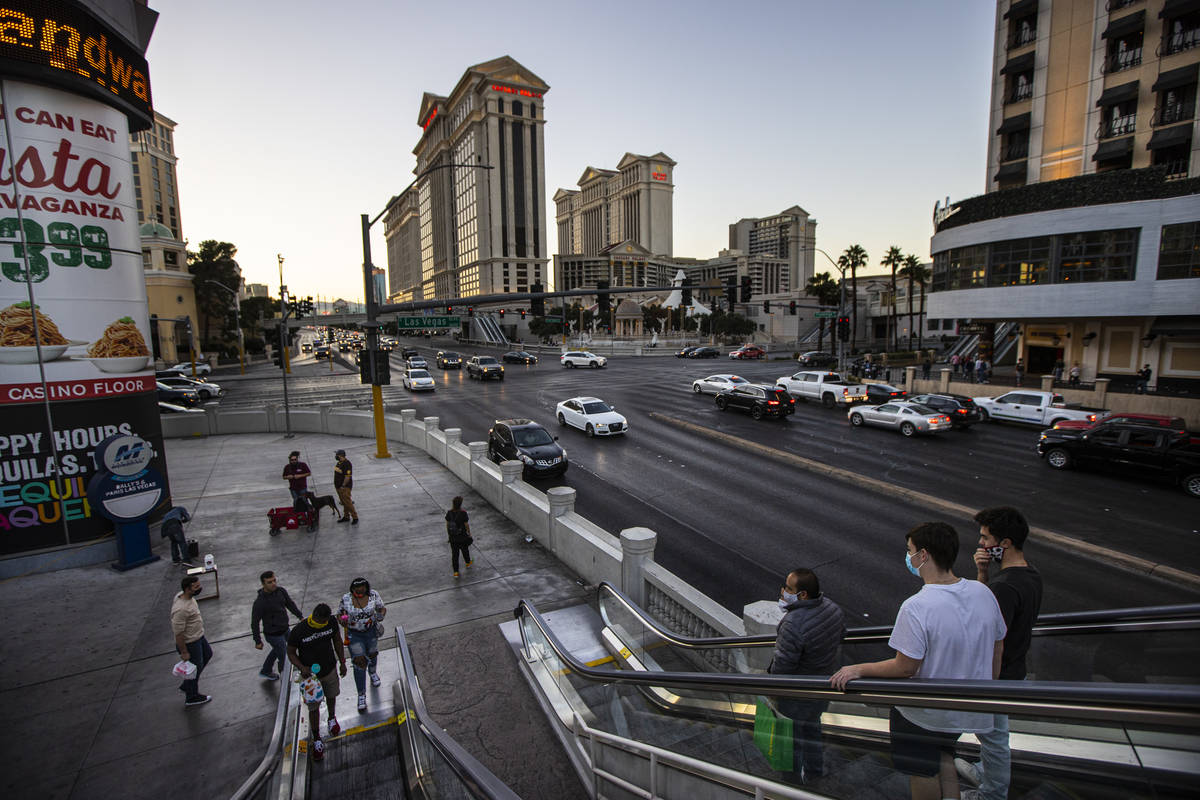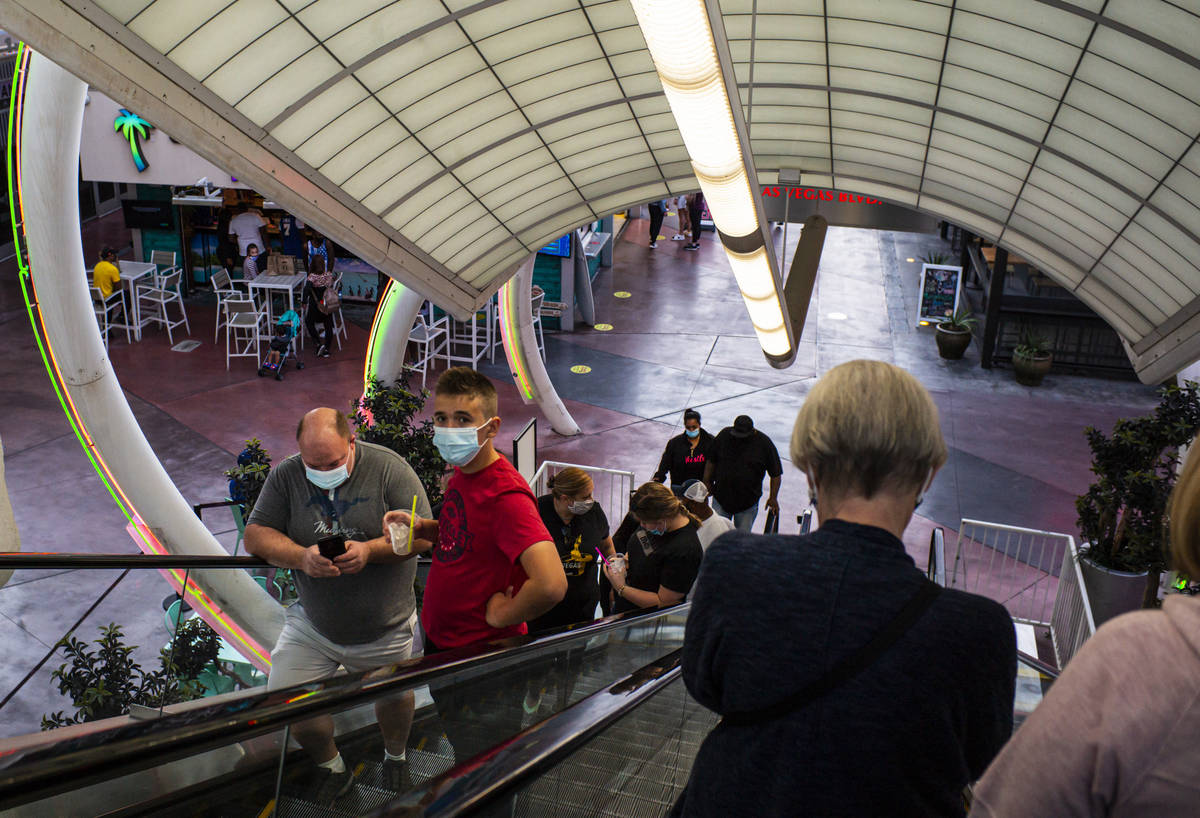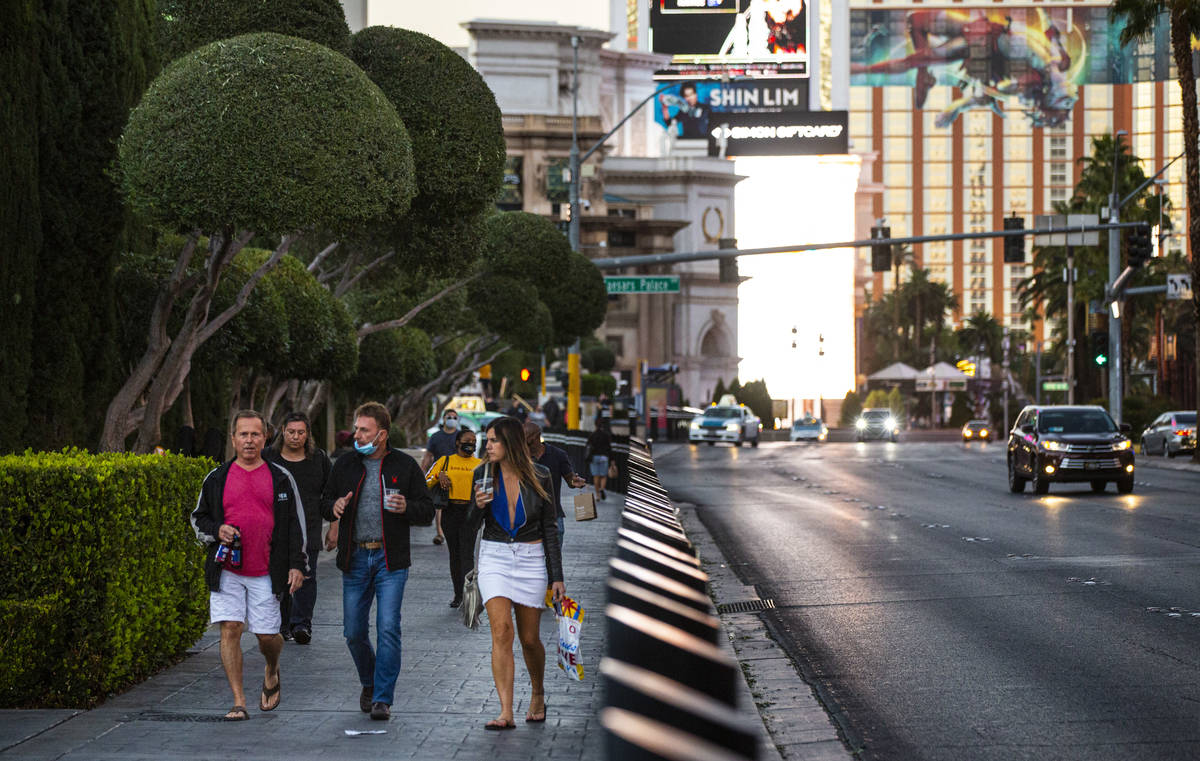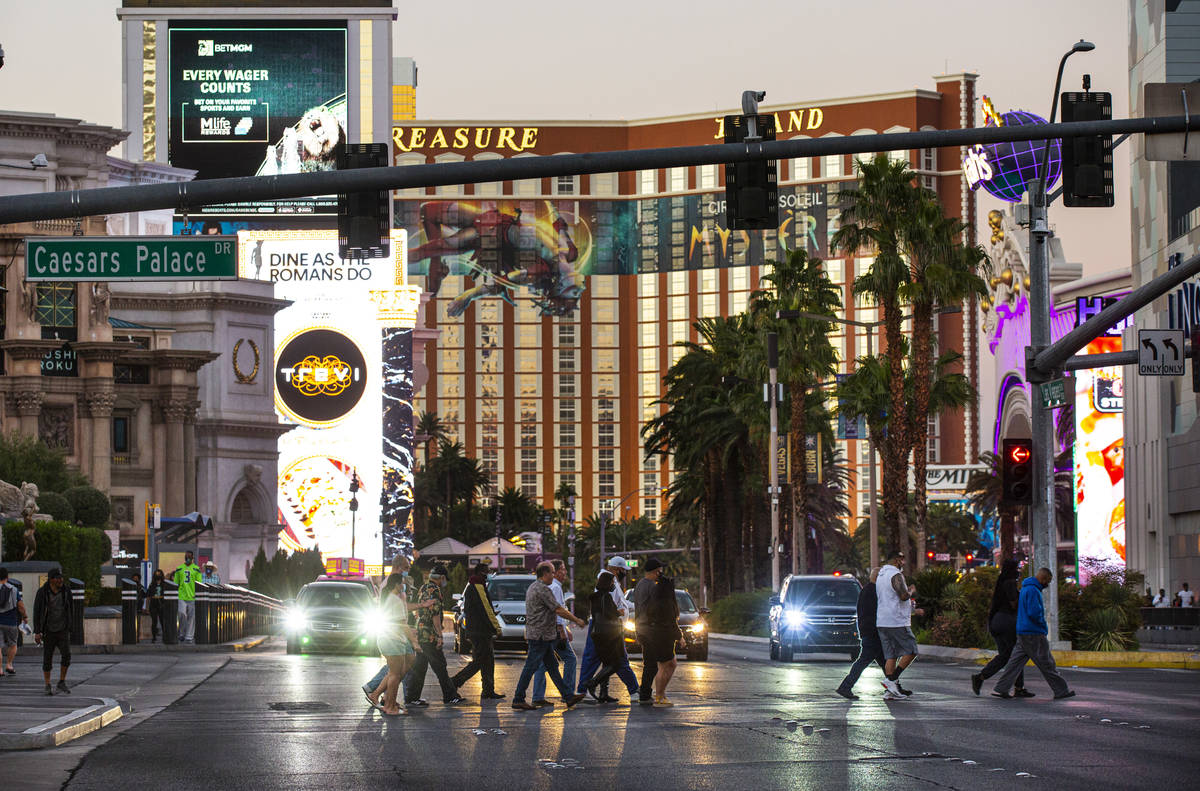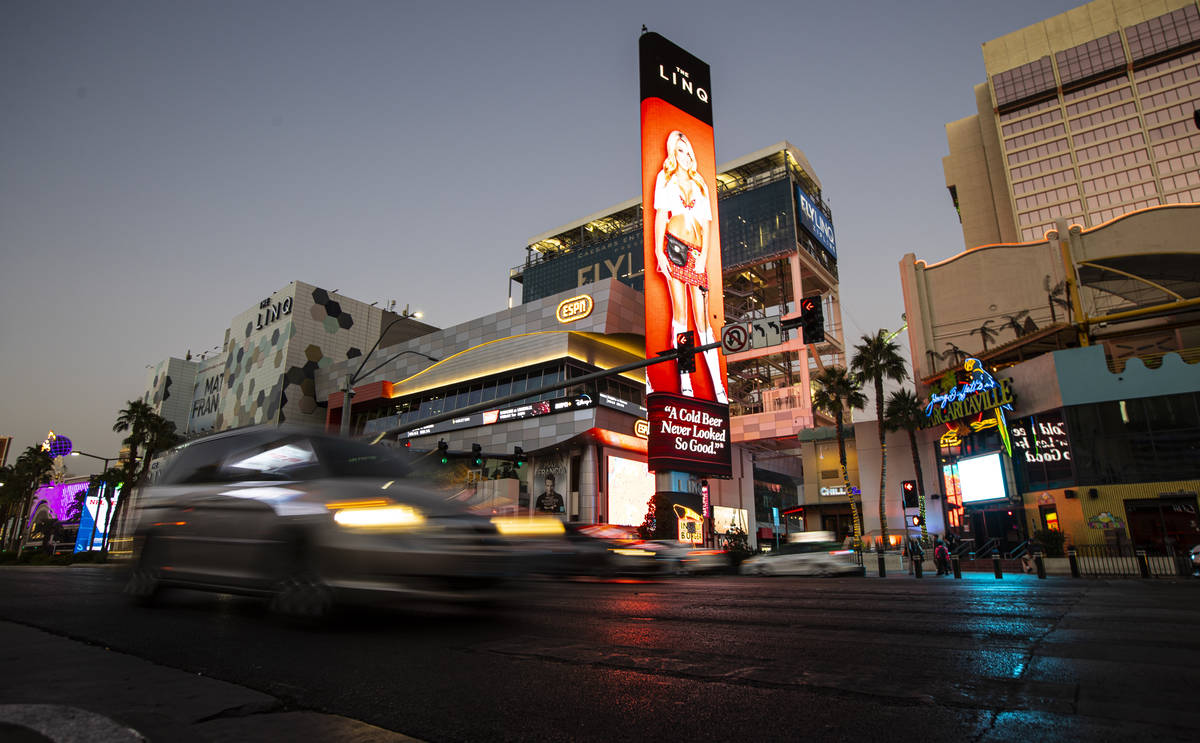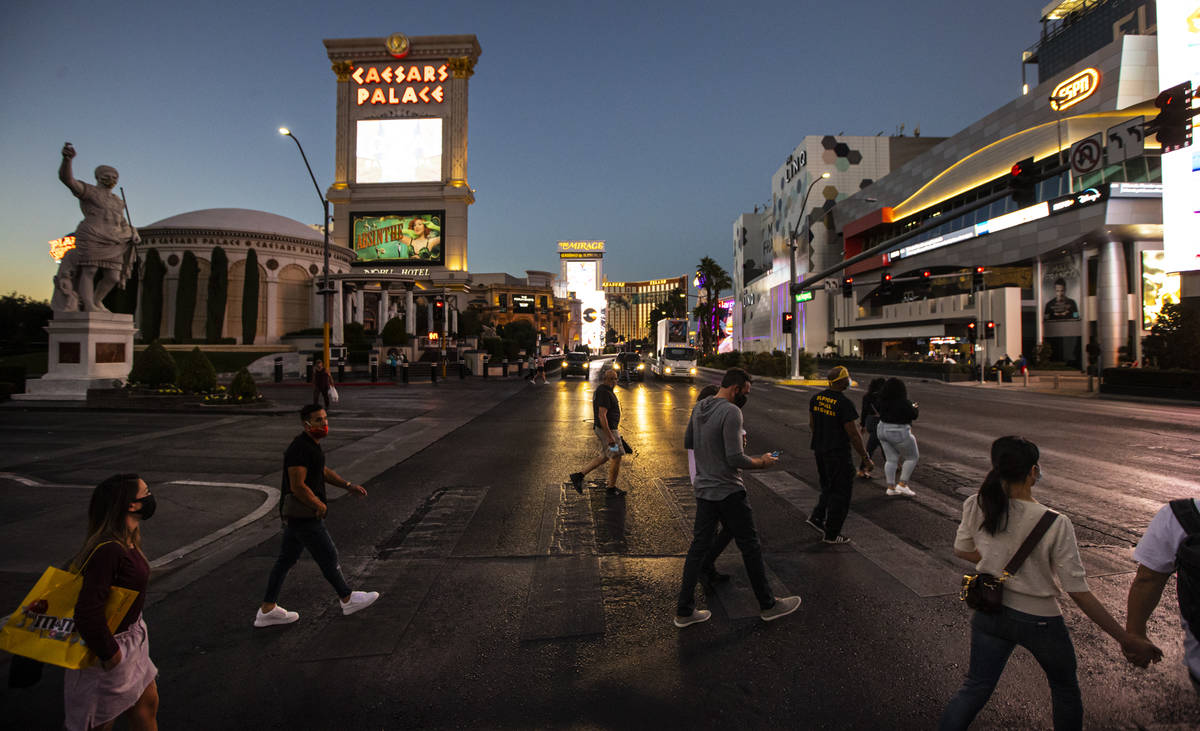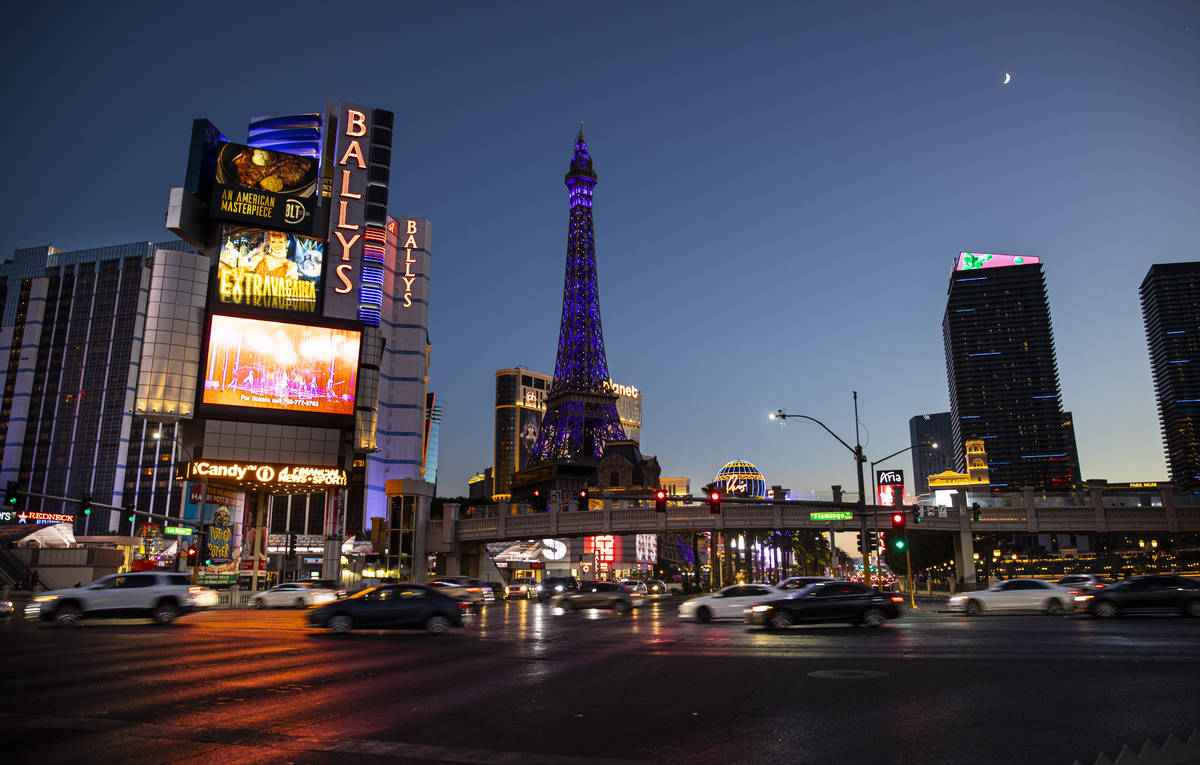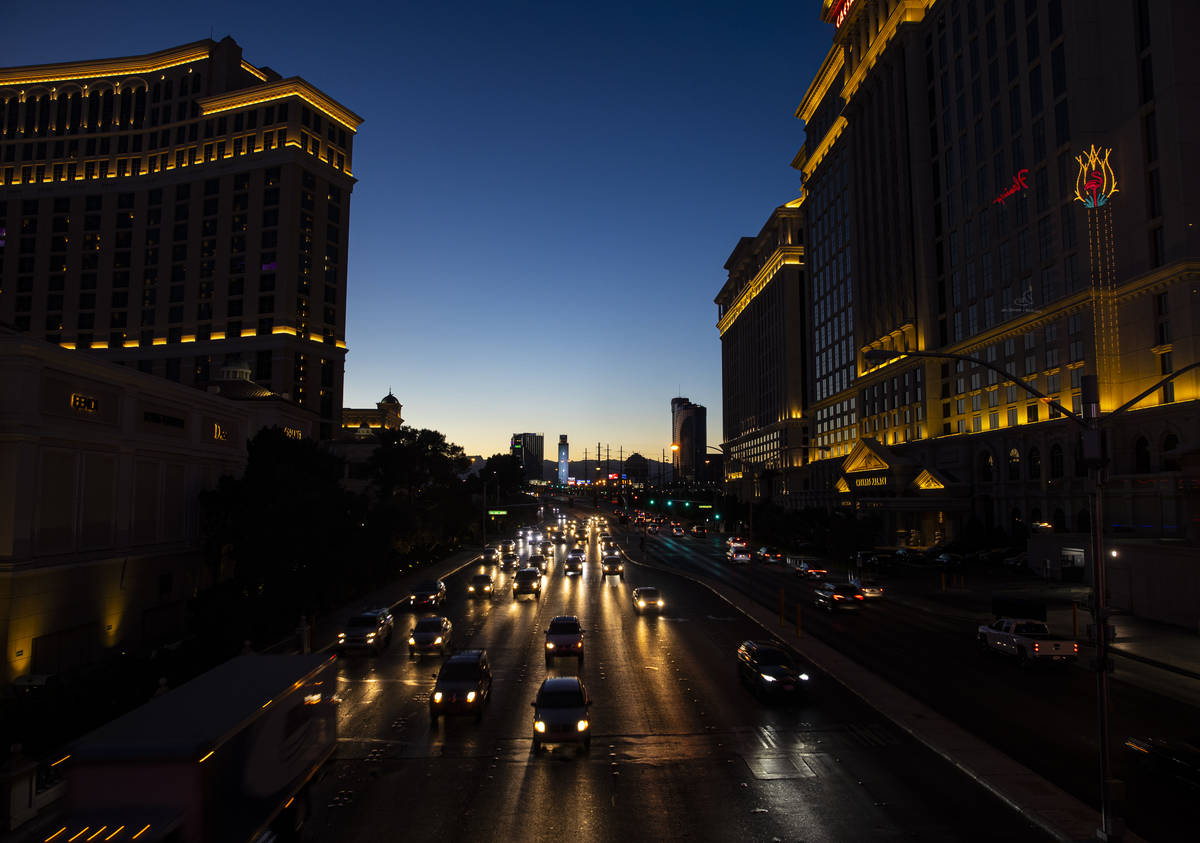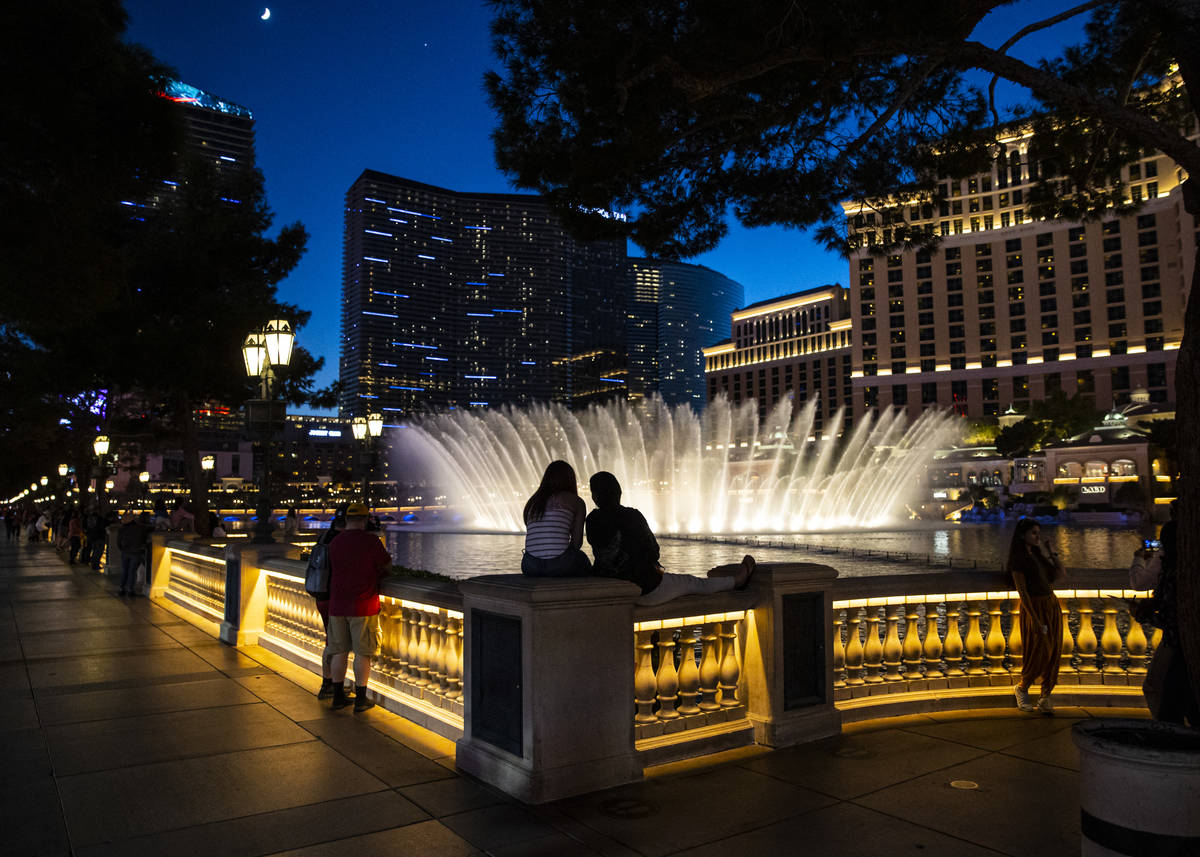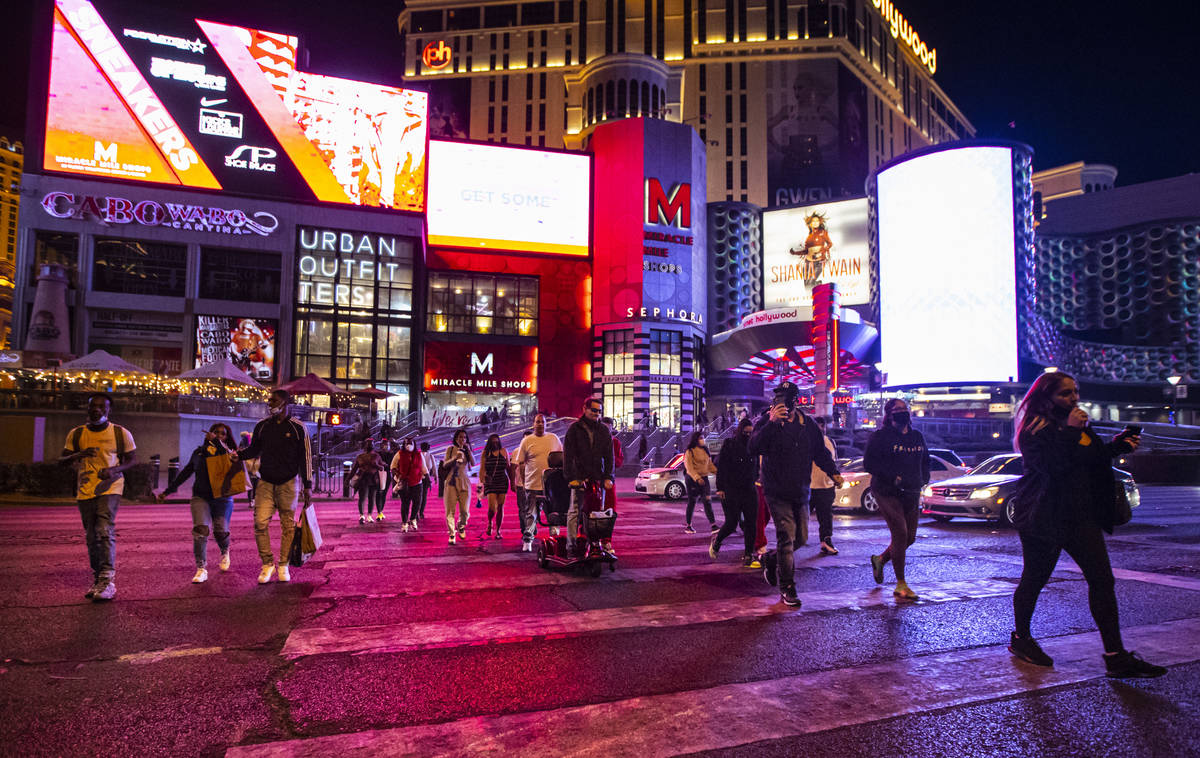Las Vegas economy still reeling from 1st shutdown. Is another coming?
Las Vegas’ businesses, employees and economy are still reeling from the state’s first shutdown. Is the city ready for another?
On Wednesday, Gov. Steve Sisolak said he would announce new measures to curb the spread of the novel coronavirus “very soon.” It’s unclear just how strict those restrictions will be or when they will go into effect, but experts say a second shutdown would have adverse effects on a number of industries within the state, and could push the state into deeper economic trouble.
“It’s not good for Nevada,” Director of UNLV’s Center for Business and Economic Research Stephen Miller said. “We were one of the hardest hit metro areas in the country in terms of the downturn because we rely very heavily on those sectors that require gathering together.”
Sisolak has not yet specified what additional restrictions would look like, but economists agree Nevada’s face-to-face industries — such as food and beverage, beauty and hospitality — would likely be the hardest hit by a potential second shutdown. Service workers, in particular, would likely suffer greatly without the ability to interact with customers and collect tips.
Nevada’s economy was showing signs of recovery from the March-April “collapse,” when gaming revenue plummeted to essentially zero, Miller said.
“It was like falling off a skyscraper,” he said.
Economic hurdles
On March 17, the day Sisolak announced the initial shutdown, Nevada had 55 reported COVID-19 cases and one death. On Thursday, the state’s Department of Health and Human Services reported a record number of new cases, 2,416, along with six additional deaths.
The surge in cases comes just weeks after Sisolak said he was interested in loosening gathering restrictions at the start of the new year. Now, local officials are urging Nevadans to avoid large gatherings. On Thursday, Washoe County’s health officer recommended limiting public and private gatherings across the state to no more than 10 people.
“We are in an unprecedented, uncontrolled and dangerous time in this epidemic,” said Michael Parkinson, a former president of the American College of Preventive Medicine who spoke at a U.S. Travel Association press conference on Thursday.
As of Thursday, the country has exceeded 11.5 million cases, with more than 250,000 deaths. Parkinson said people not adhering to face mask recommendations and continuing to take part in large social gatherings have caused numbers to spike.
“Part of this is the post-Halloween gatherings epidemic,” he said. “It’s almost like clockwork, two weeks later, where you see a surge.”
The uncertainty of what new restrictions are coming puts businesses in a temporary bind, said Tom Harris, professor of economics at the University of Nevada, Reno and director of the University Center for Economic Development.
“If you’re a restaurant, are you gonna only have takeout, or are you gonna only have to be restricted to 50 to 25 percent (capacity)? Is that enough volume for you to be profitable? Nobody knows,” Harris said.
Other states’ travel restrictions could also factor into Nevada’s tourism industry, notably California’s guidance for anyone entering the state to quarantine for 14 days, Harris said.
Nevada is “an export economy,” though the prime export, tourism, is “consumed at the point of origin,” adds John Restrepo with RCG Economics.
Promising developments in COVID-19 vaccines could help the state’s long-term recovery if the vaccines are effective and widely distributed, the economists said.
A point of no return
Some Nevada-based casino companies are already taking a hit from second-round restrictions in other states.
Illinois, Michigan, New Mexico and Philadelphia have shut down casinos completely. Other gaming markets — including New Jersey, Ohio and Massachusetts — have implemented curfews that limit foot traffic at resorts.
According to the American Gaming Association’s online casino tracker, 99 of 994 tribal and commercial casinos across the country are temporarily closed, as of Thursday.
Those shutdowns are already having adverse effects on casino employees.
On Nov. 6, after Massachusetts implemented a nightly curfew on its three casinos, Wynn Resorts Ltd. — which operates Encore Boston Harbor — said it could furlough up to 1,000 employees. MGM Resorts International, which runs MGM Springfield, said it had laid off or cut back hours for 250 employees.
If Nevada casinos were to shut down again, said Brendan Bussmann, director of government affairs for Global Market Advisors, it could push the industry to a point it may not be able to recover from.
“There’s a host of different things that could happen, from job cuts to financial straits put on these companies,” he said. “While currently liquid, (another shutdown) further puts strains on their resources.”
Spokespeople for MGM, Wynn, Caesars Entertainment Inc., Boyd Gaming Corp., Las Vegas Sands Corp. and Red Rock Resorts Inc. did not return requests for comment.
During the first shutdown, which ran from mid-March through June 4, Las Vegas-based casino operators were burning up to $14.4 million in cash daily. Thousands of employees were furloughed and laid off, many of whom have yet to return to work.
Companies have taken dramatic steps to cut costs and increase liquidity since then — some, like Red Rock, even reported record margins during the third quarter — but a second shutdown could still be detrimental to businesses.
Boyd President and CEO Keith Smith said during an earnings call last month that a resurgence in COVID-19 cases “could be a risk to the business.”
The timing of the shutdown would come in the midst of Las Vegas’ traditional slow season. Foot traffic is already low during this time of year — the lack of entertainment, airlift and group business has made it dismal, especially midweek. If the state does implement restrictions on the gaming industry, traffic could take an even more severe hit, said Greg Chase, founder and CEO of Las Vegas-based Experience Strategy Associates.
“It’s not a great outlook,” he said. “There are a lot of casinos that are trying to stop financial bleeding at the moment. Closing certainly causes additional loss, and no one wants to see that.”
Heightened restrictions would not be easy for casino operators, many of which are still recovering from the initial shutdowns and low visitation rates, but Chase said they could be worth it for the industry in the long run.
“The biggest priority every needs to be focused on is saving lives,” he said. “Now is a time where we say, we’re going into a slow period. Where can we choose to shrink or shut down some of our operations, even in the gaming or hospitality environment.”
Shutdown ‘top of mind’ for nonprofits
The United Way of Southern Nevada said that during its weekly Zoom meeting with over 200 local nonprofits Thursday, the possibility of a second shutdown was top of mind for many organizations.
Most local nonprofits expressed concerns about long-term support like funding and supplies during Thursday’s call, said CEO Kyle Rahn. Another shutdown will most likely have an impact on in-person volunteers.
Some nonprofit leaders are unsure what another shutdown, or heightened restrictions, would look like for the essential services they provide, said Rahn. Other nonprofits said they were worried about being exposed to COVID-19 as they are often on the front lines and at more risk for exposure than the average citizen.
“We are concerned on the effect in our community but are working our hardest to provide support to those in need,” said Rahn. “No one can perform if they are ill. If the restrictions are heightened it protects everyone from the spread of infection.”
“The economic impact will continue well past the reopening and our community will be seeking support and services,” Rahn added.
Other nonprofits, like Three Square, said they’ll be prepared if another shutdown occurs.
“We are keenly aware and staying tuned to what’s going on,” said Larry Scott, chief operating officer at Three Square. “When we were hit with this first shutdown, it was so sudden that our agency partners, many which had to shut down, that we had to reinvent ourselves with drive-thru distribution sites. But if we experience another shutdown, that infrastructure is built so we will be far better prepared this time around.”
The food bank distributes 5.6 million pounds of food each month and sees upwards of 400 cars a day at each drive-thru site. The nonprofit operates 16 drive-thru locations each week.
Scott said that another shutdown will certainly impact unemployment across Nevada, which is closely tied to the demand it sees.
“I think without question you’ll see demand,” he said. “If you look at the demand that took place after the first shutdown and you witness the cars lined up five to six miles long on Sahara Avenue to get food at the Palace Station, you’ll know how immediate with high unemployment, how it affects our responsibilities.”
The Review-Journal is owned by the family of Las Vegas Sands Corp. Chairman and CEO Sheldon Adelson. Las Vegas Sands operates The Venetian and Palazzo on the Strip.
Contact Bailey Schulz at bschulz@reviewjournal.com. Follow @bailey_schulz on Twitter. Contact Mike Shoro at mshoro@reviewjournal.com or 702-387-5290. Follow @mike_shoro on Twitter. Contact Jonathan Ng at jng@reviewjournal.com. Follow @ByJonathanNg on Twitter.



